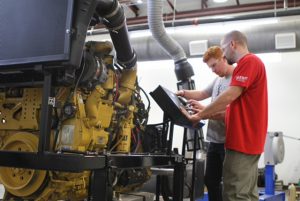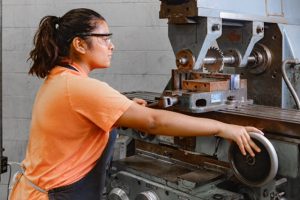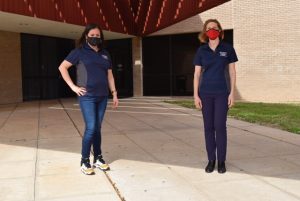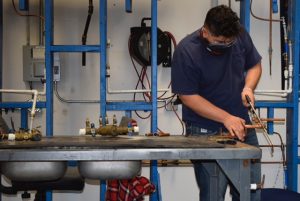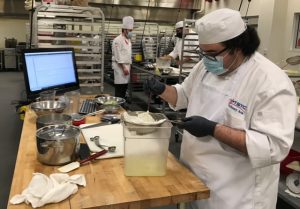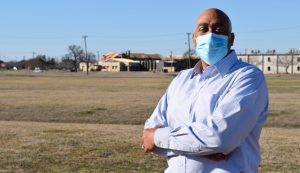(RED OAK, Texas) – The coronavirus pandemic has not slowed down diesel equipment work in North Texas.
“The main thing that comes to mind about our program is that the students who have graduated and were working during this pandemic never lost any wages,” said Matthew Dobbs, lead instructor in Texas State Technical College’s Diesel Equipment Technology program at the North Texas campus in Red Oak. “They continued to work and provide for their families due to the need for continued trucking deliveries. The last thing we needed was for the trucks to not be able to deliver the supplies that we needed to survive.”
More than 500 jobs were advertised for bus and truck mechanics and diesel engine specialists from September 2020 to February 2021 in the 16-county area that Workforce Solutions of North Central Texas serves. Employers with the most job openings during that time were Love’s Travel Shops, Ryder System Inc., TravelCenters of America and Rusk Truck Centers.
There were more than 7,600 bus and truck mechanics and diesel engine specialists in the third quarter of 2020 in Workforce Solutions’ service area. The mean hourly wage for the workers was $27.04 in 2019, according to the most recent data from the agency.
The U.S. Bureau of Labor Statistics has estimated that there will be a need for more than 290,000 bus and truck mechanics and diesel engine specialists by 2029.
Timco Logistics has called Waxahachie home for about two decades and specializes in brokerage work, hauling, logistics and trucking. The company is working with the city of Waxahachie and Ellis County in a building expansion project expected to break ground later this year. The expansion means the company will need at least 15 new diesel technicians to handle an increased workload.
“They are having to outsource some of their maintenance work because they cannot get it all done with the facility they have right now,” said John Dagg, an area certified public account working as a consultant with Timco Logistics. “It is stretched and not big enough. That costs money when they outsource truck maintenance.”
Brandon Luiszer, manager of talent acquisition for Love’s Travel Shops, said it is a challenge to find qualified job candidates, especially in less populated areas. Love’s has several locations in the Dallas-Fort Worth area and throughout Texas. The company is having a National Hiring Day event on March 31 with the goal of hiring more than 2,000 workers nationwide.
The company has an apprenticeship program that enables participants to earn competitive wages and work toward becoming diesel mechanics. At the end of the program, participants receive a tool kit that is valued at $3,500 and is theirs to keep after one year of employment with the company.
“There needs to be more visibility into career opportunities within the skilled labor workforce and the rewards that come with these opportunities,” Luiszer said. “There should also be more focus on providing options to high school students besides joining the military or (pursuing) a traditional four-year degree.”
Marcus Balch, provost of TSTC’s North Texas campus, said there is a pipeline of students who took automotive classes at Red Oak High School and are enrolling at TSTC.
“Diesel Equipment Technology is a campus staple,” he said. “Many of our students come to our campus to enroll specifically in the program, and that is well known for establishing solid baseline skills in this field of study. In addition, we have three very solid instructors in this program, all of whom are TSTC graduates who have returned to teach.”
TSTC in North Texas offers an Associate of Applied Science degree and two certificates in Diesel Equipment Technology – Heavy Truck Specialization.
Registration for the summer and fall semesters continues at TSTC. For more information, go to tstc.edu.
